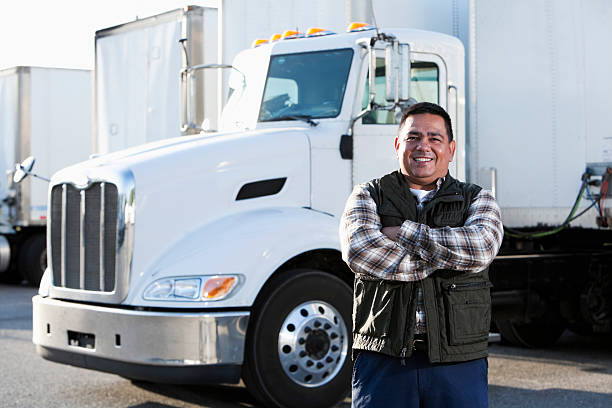Subtotal ₹0.00
Fraud is not a new phenomenon; it has plagued personal and business domains for centuries.
Mark Twain’s existential commentary in The Mysterious Stranger resonates with today’s challenges:
“What is man? A fraud? A liar? A crook? His finest actions come from vile motives. Do you think he likes the sins he commits every day? No. But he can’t help himself; they are part of his nature.”
While Twain’s words reflect a broader human condition, the trucking industry is facing a specific, growing problem—fraud.
The Impact of Fraud in Trucking
Fraud in the trucking industry has escalated significantly, becoming a severe economic problem. The Transportation Intermediaries Association (TIA) estimates that fraud costs the industry about $800 million annually (FreightWaves). This includes various fraudulent activities such as cargo theft, double brokering, and identity theft.
Cargo theft remains a significant issue, with sophisticated criminals stealing entire truckloads of valuable goods. Double brokering, where fraudulent brokers pose as legitimate ones and subcontract shipments without the original customer’s knowledge, has also become prevalent, inflating transportation costs and causing delivery delays (Grant Thornton) (FreightWaves).

The financial repercussions are immense. Fraud leads to increased insurance premiums, which carriers and brokers must pay. These costs inevitably get passed down the supply chain, ultimately affecting consumers through higher prices and reduced product availability. Moreover, fraudulent activities disrupt operations, causing delays and uncertainties that can result in missed deadlines and contractual penalties (FreightWaves).
Mitigation and Elimination Efforts
To combat these issues, several measures have been implemented and proposed:
Government and Industry Actions
1. Regulatory Measures: The Federal Motor Carrier Safety Administration (FMCSA) is being urged to enforce stricter regulations and oversight to prevent fraud. Ensuring that all brokers and carriers are properly licensed and bonded, and that their activities are monitored more closely, is critical (FreightWaves).
2. Technological Solutions: Adoption of advanced technologies like blockchain for transparent and tamper-proof transactions, GPS tracking, and real-time shipment monitoring are vital. These technologies can help detect and prevent fraud before it causes significant damage (FreightWaves).
3. Industry Collaborations: Industry associations like TIA are working with lawmakers to create more stringent laws and better enforcement mechanisms. This includes lobbying for increased penalties for fraudulent activities and ensuring swift prosecution to deter potential fraudsters (FreightWaves).
What Needs to Be Done
While current efforts are commendable, more comprehensive actions are needed to fully mitigate and eliminate fraudulent activities in the trucking industry. Here are some recommended steps:
Enhanced Regulations and Enforcement
-
- Stricter Licensing: Implement more rigorous checks and regular audits of brokers and carriers to ensure compliance with industry standards.
-
- Penalties and Prosecution: Increase penalties for fraudulent activities and ensure swift prosecution to deter potential fraudsters.
-
- Education and Awareness: Launch campaigns to educate industry stakeholders about the types of fraud and how to detect and prevent them.
Group-Specific Actions
Carriers
- Due Diligence: Conduct thorough background checks on brokers and shippers before entering into contracts. Use reputable platforms and tools to verify the authenticity of business partners (Grant Thornton).
- Technology Adoption: Implement advanced tracking and monitoring systems to ensure the security of shipments and detect any anomalies in real-time.
- Insurance: Obtain comprehensive insurance coverage to mitigate financial losses from fraud.

Brokers
-
- Verification Processes: Establish stringent verification processes for carriers and shippers. Use digital platforms that offer secure and verified transaction capabilities (Grant Thornton).
-
- Fraud Detection Tools: Invest in fraud detection tools and technologies to identify suspicious activities early.
-
- Transparency: Maintain transparent communication with all parties involved in the shipping process to build trust and accountability.
Dispatchers
-
- Training: Ensure that dispatchers are well-trained in recognizing signs of fraud and know how to respond appropriately.
-
- Verification: Implement robust verification processes to ensure that the carriers and brokers they work with are legitimate and trustworthy.
Shippers
-
- Partner with Reputable Brokers: Work only with brokers who have a proven track record and are well-regarded in the industry (Grant Thornton).
-
- Contract Clauses: Include specific clauses in contracts that address fraud prevention and outline the steps to be taken if fraud is detected.
-
- Insurance: Ensure that shipments are adequately insured to cover potential losses due to fraud.
Consumers
-
- Awareness: Stay informed about the origins and logistics of products, especially when ordering from new or unfamiliar vendors.
-
- Support Reputable Businesses: Prefer buying from businesses that have clear and transparent supply chains.
US Economy
-
- Legislation: Enact comprehensive laws that specifically target fraudulent activities in the logistics and transportation sectors.
-
- Funding for Enforcement: Allocate more resources to agencies like the FMCSA for the enforcement of anti-fraud regulations.
-
- Public-Private Partnerships: Encourage collaboration between government agencies and private companies to develop innovative solutions to combat fraud (FreightWaves).
Global Economy
-
- International Cooperation: Foster international cooperation to address cross-border fraud. This can include sharing information and best practices among countries.
-
- Standardization: Work towards global standards for freight verification and fraud prevention to ensure consistency and reliability in international shipping.
-
- Technology Integration: Promote the integration of global tracking systems to enhance transparency and reduce opportunities for fraud.
Conclusion

Fraud in the trucking industry is a pervasive issue that affects all stakeholders, from carriers to consumers, and has significant implications for both the US and global economies. While substantial efforts are being made to combat this problem, more comprehensive and collaborative actions are needed to fully mitigate and eliminate fraudulent activities. By all parties doing their part, a practice of due diligence, adopting advanced technologies, enhancing regulatory measures, and fostering international cooperation, the industry can better protect itself from fraud and ensure a more secure and efficient supply chain.
For more detailed information on this topic, please refer to the sources:
-
- FreightWaves: TIA warns Congress of rampant fraud in trucking.
- Grant Thornton: Double brokering fraud in the transportation industry: What is it?.
- FreightWaves: Bankruptcies, fraud and a missing trucker: Key trucking stories in 2023 (FreightWaves) .
- Fleetio: 2024 Trucking Industry Forecast.
- Overdrive: Chicago-area freight thief steals $9.5M in goods: Courts.



Support Fr8connect
Good article.